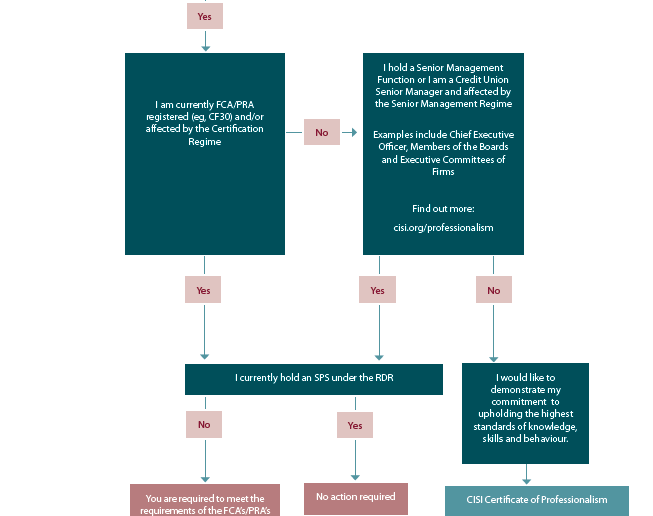![]() In March 2016, the UK’s Regulators – the Prudential Regulation Authority (PRA) and the Financial Conduct Authority (FCA) – Senior Management and Certification Responsibility regimes came into force. At present, these regimes require all UK Banks, Building Societies, Credit Unions and some PRA-Designated Investment Firms to assess and demonstrate annually that holders of Senior Management Functions and employees impacted by the Certification Regime meet the FCA and PRAs ‘Fitness and Propriety’ (F&P) rules. It is expected that the regimes will also be rolled out to a wider audience in 2018.
In March 2016, the UK’s Regulators – the Prudential Regulation Authority (PRA) and the Financial Conduct Authority (FCA) – Senior Management and Certification Responsibility regimes came into force. At present, these regimes require all UK Banks, Building Societies, Credit Unions and some PRA-Designated Investment Firms to assess and demonstrate annually that holders of Senior Management Functions and employees impacted by the Certification Regime meet the FCA and PRAs ‘Fitness and Propriety’ (F&P) rules. It is expected that the regimes will also be rolled out to a wider audience in 2018.
The Chartered Institute for Securities & Investment (CISI) support the regulators efforts to raise standards within the industry through these regimes, and as a result the CISI, jointly with the Chartered Banker Institute, launched a new initiative in September 2016, the Certificate of Professionalism.
The Certificate of Professionalism is designed to be able to be used as part of a firm’s F&P assessment
Speaking at the launch of the initiative, Simon Thompson, FCIBS and CEO of the Chartered Banker Institute said “This joint initiative complements and supports the work of regulators and banks to enhance and sustain customer-focused, ethical professionalism in banking. Building on our many years of experience of assessing individuals’ professional and ethical competence, and working with our colleagues at CISI, we are able to help firms assess and certify individuals’ fitness and propriety using a standardized approach and methodology. Individuals meeting our requirements will be issued on an annual basis, with a Certificate of Professionalism, certifying their competence and behaviour, which in the long term will help to restore public trust and confidence in the banking and financial services industry.”
The Certificate of Professionalism is designed to be able to be used as part of a firm’s F&P assessment of an individual, as it formally demonstrates an individual commitment to maintaining knowledge and skills and upholding the highest standards of behaviour. Individuals holding a certificate will be required to maintain the high standards expected of a professional, which go above and beyond the requirements set out in law and regulation. Therefore, by launching this initiative, the CISI aims to inspire individuals and employers to go beyond the requirements of the regimes to enhance and sustain a culture of professionalism in the industry.
The CISI believes professionalism is the blend of three elements – knowledge, skills and behaviour, and the Certificate of Professionalism is designed to reflect these three essential components.
In order to receive a CISI Certificate of Professionalism, applicants will need to demonstrate that they have relevant knowledge, skills and behaviour:
Knowledge
Applicants must:
- Hold at least a QCF level 3 qualification as recognised by the CISI; or
- A ‘Certificate By Experience’ route is available for professionals with a minimum of 15 years’ work experience. The criteria for this route is made up of a combination of seniority, experience and relevant professional qualifications.
Skills
Applicants must:
- Complete a self-assessment form which demonstrates that they have completed at least 35 hours of CPD relevant to their job role over the past 12 months. This self-assessment form must be verified by the applicant’s employer.
Certificate holders must:
- Complete at least 35 hours of CPD relevant to their job role within a 12 month period. At least 21 hours should be Structured CPD and five hours of the 21 structured hours must consist of CPD related to regulation, risk, integrity and ethics.
Behaviour
Applicants must:
- Become a member of the CISI, sign up and adhere to the CISI Code of Conduct, agree to uphold the highest standards of behaviour and pass IntegrityMatters, the CISI’s online integrity test.
The Certificate is suitable for individuals who wish to formally demonstrate their commitment to professionalism. It is also suitable for firms who wish to have third party verification from the CISI, an established, recognised and well regarded professional body, that their staff are committed to upholding high professional and ethical standards.
The aim of the initiative is that practitioners will want to voluntarily demonstrate that they uphold these standards because they recognise the importance and value of professionalism, and not just because it is what is expected of them by the regulators. Many practitioners in financial services work hard to attain qualifications, keep their skills up to date and uphold high standards of ethics and integrity, and holding a Certificate of Professionalism formally demonstrates all that effort and commitment to firms and to the public. At the launch of the initiative, Simon Culhane, Chartered FCSI and CISI Chief Executive said “A firm and individual who adopts the new Certificate of Professionalism is demonstrating to the public and stakeholders the value they place on achieving the gold standard in skills, competence and behaviour. It shows that they are ahead of the curve in taking responsibility for maintaining and developing their own competency.”






